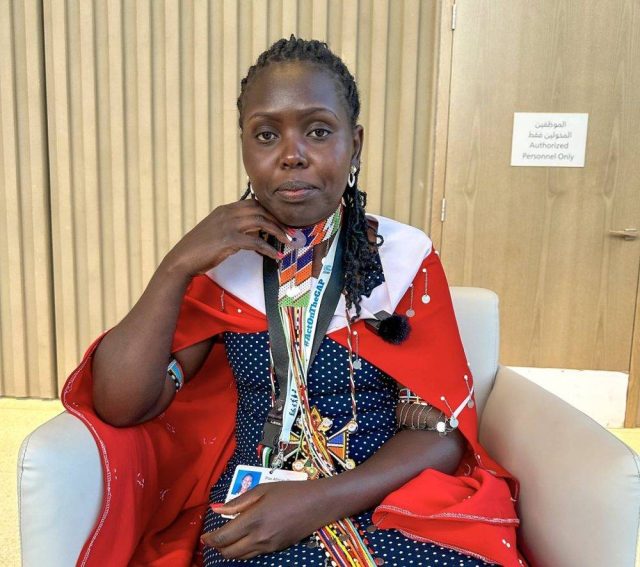

A smoothie of fresh mango, avocado and banana was the rich and creamy fruit drink that not only excited Edith Santiyian’s taste buds but gave rise to an idea that is bringing tree cover to desolate communities in the Rift Valley.
Santiyian, 29, remembers savouring the medley of fruit and pondering the deeper connection between nature’s bounty and the health of her home environment. What was to be a refreshing start to her day suddenly turned from sensory overload to a moment of epiphany, when she realised that in her community – devastated by years of charcoal burning, overgrazing and now, extremes of weather – fruit trees were seldom felled.
That moment gave rise to the Nalala Tree Foundation, a Community-Based Organization (CBO) dedicated to planting fruit trees as a means of reforesting communities.
“When you plant a fruit tree, it is very difficult for human beings to cut them compared to ordinary trees… we are bringing in sustainability because women can actually sell the fruits,” she explained.
“So, I do a lot of climate advocacy and sensitization so that we are able to create sustainable livelihoods amongst pastoralist women.”
Mango and avocado trees, once fully grown, provide shade and surplus fruit that can be sold for extra income.
For Santiyian, however, it was only after she lost her job as a news anchor and volunteered at Kenya’s National Environmental Management Authority (Nema) that she finally summoned up the will to launch her organization.
“Based on the knowledge that I got when I volunteered as a communications officer…I gave birth to a new baby which was the foundation,” she said with a chuckle. That was in 2021.
She began with an initial distribution of 2,000 tree seedlings and soon after, another 3,000 were given to women in the community. The first batch of seedlings was intended to help rehabilitate community-owned wildlife habitats in her native Narok, renowned for the Maasai Mara National Park, while the latter was planted within the communities to enhance local ecosystems and livelihoods. She also provided education on the significance of her choice of species, to the community.
Santiyian’s approach is slowly but steadily transforming the landscape of Maasai indigenous communities in Narok, turning barren fields into flourishing orchards. She hopes to replicate this success in Kajiado, Marsabit, and Baringo counties.
On the sidelines of the COP28 climate summit in Dubai, Santiyian’s enthusiasm was palpable. Fitted out in Maasai garb, with a polka-dot dress overlaid with a vibrant red shawl adorned with delicate white patterns and an intricately beaded necklace serving as a statement piece reflecting cultural heritage and artisanal craftsmanship, she attracted plenty of attention.
“I have worn our Maasai outfits since the conference commenced,” she said, asserting that she was able to redirect the attention she received towards the activities of indigenous communities working to combat climate change, in whatever way they could.
The Nalala Tree Foundation has extended its impact through partnerships and educational programs tailored to cater to various groups, from schoolchildren to community leaders.
By involving local communities in her organisation’s activities, Santiyian said, she was ensuring that knowledge and understanding of climate issues was rooted in the culture and daily lives of the people, making it more sustainable and impactful.
– bird story agency
Edith Santiyian started a foundation dedicated to reforestation using fruit trees





